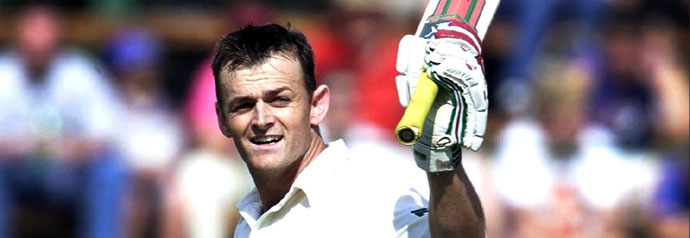
“It’s not the cheating that got me, it was the feeling I had got away with it.” I’m not sure what movie that’s from (do please tell), but when I heard it I understood the meaning. The guilt, the knowledge that your victory had been sullied, that you had not played fair was all consuming.
I know many of my posts are about cricket, but it’s the world cup final tomorrow, and as the season draws to a close (mine as cricket coach, backyard player and avid watcher), I get to thinking about the old game and it’s life parallels.
For those who do not know all the ins and outs of the game, over the centuries cricket developed it’s own ‘spirit‘, as embodied by the great Sir Don Bradman (Aussie, best player ever) who had this to say on cricketers’ virtues:
“When considering the stature of an athlete or for that matter any person, I set great store in certain qualities which I believe to be essential in addition to skill. They are that the person conducts his or her life with dignity, with integrity, courage, and perhaps most of all, with modesty. These virtues are totally compatible with pride, ambition, and competitiveness. “
He also said:
‘It is the responsibility of all those that play the game (the custodians) to leave the game in a better state than when they first became involved’.
Bradman was by all accounts a genius, extremely argumentative and loved nothing more than “grinding the English into the dust”. He was not the most likable chap, he was very competitive. He ended up with a test batting average of almost 100, way above all over players (the next best are in the low 60s; a ‘great’ batsman is considered such if their average tops 50.) But to him conduct, integrity and leaving the game ‘in a better state’ was the most important thing.
I have played cricket in England, Singapore and Australia, and one thing that sets your average weekend English social cricketer apart from their Aussie counterpart is the issue of ‘walking‘.
Imagine you’ve just nicked the ball off your bat’s edge (you’ve heard it, everyone has) and it goes through to be caught by the keeper. Most Englishmen will walk, knowing they are out, just as if their stumps had been knocked over or if the ball had been cleanly caught by an outfielder. It’s clearly out. Why hang around like a goose? You just look stupid. To wait around and hope the umpire might somehow miss the edge (knowing you’re out) is tantamount to cheating. In fact, it is cheating. In the rules, you’re out, fair and square. Walk off.
To an Aussie though, this last paragraph is pure heresy. “Umpire’s got a job to do mate,” they say, “they make mistakes, so do we as players, often I’ve been given out when I wasn’t so I’m not moving if I know I’m out; I’m waiting for the umpire to give me out.”
OK, I get the logic, but you wouldn’t wait around if you were clean bowled, run out by a mile, played on, or had been caught out by an outfielder, or even a slip or gully would you … so what’s the difference between a clear nick to the keeper, that you know is out?
The difference is that you’re trying to get away it. You’re trying to cheat. By the rules you are out, but you are hoping to stay. You felt the ball snick the edge of your bat (believe me, batsmen know 99% of the time). So go. Umpires usually give the batsman the benefit of the doubt anyway, and it’s this that the non-walker is preying (praying!) on. It’s out and out cheating.
If the situation was reversed, and you heard the nick, you’d be giving the batsman all sorts of abuse if they stayed around. So you’re being two-faced as well.
The same goes for appealing for catches, run outs or LBWs that you know are not out, in the hope the umpire might get it wrong.
If you walk every time, you are not going to be given out as much by umpires (after all, when you nick it, you walk). I walked, and I can’t remember ever being given out incorrectly for a nick behind. A few dodgy LBWs perhaps (edged into the pads) but then again how many were given not out when they may have been? No one walks on LBWs, but on everything else bar a mighty close run out when you’re not sure as you’re diving your ground, get out of there.
I also quite liked the abrupt turn and move off the pitch, as if to say “Yep, good ball, I got that wrong, I’m out of here”. I played hard, I played fair. (I could get annoyed with myself in the sanctity of the changing rooms, but I would be dignified in my public exit!)
Afterwards, you know you’ve done the right thing. You’ve set the right example. To yourself, the team, opposition, spectators and your children. Winning fairly is a great feeling, when you’ve played well. Winning on a cheat is not winning. Losing on a cheat is utterly galling, but never lower yourself to those standards.
What’s true in sport is the same in business, love and life generally.
I’m as competitive as the next bloke, but I see ‘not walking’ as clear cheating. Always have, always will. I lose respect for anyone who does not walk (they look ridiculous when DRS proves them wrong), and I think less of them. I’m a walker, are you ..?
